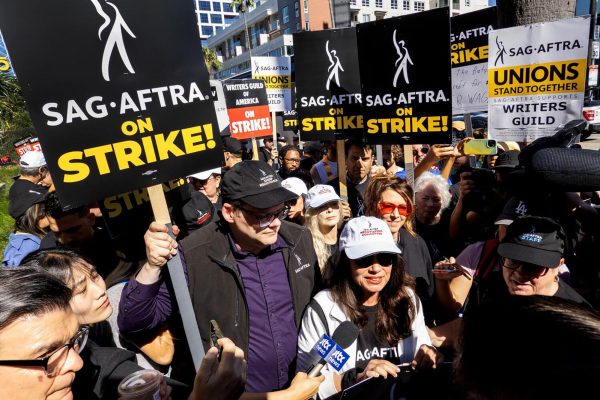
The momentum made by Wilmington’s growing film industry has slid to a halt due to the recently ended SAG-AFTRA Actor’s Strike. The movement, beginning in and largely based in Los Angeles, impacted film production across the United States.
The SAG-AFTRA Strike is a strike that started July 14 and ended Nov. 9, continuing for a total of three months across the United States. The strike was held by the Screen Actors Guild (SAG) against the Alliance of Motion Picture and Television Producers (AMPTP), because of labor disputes surrounding pay increases, protections from the emergence of AI and residual pay from streaming services.
Wilmington’s booming film industry, dubbed “Hollywood East,” has come to a stop as a result of the strike.
“It’s a challenge to the whole entire industry, and one that really can’t be overcome until the industry decides to move forward again,” said Johnny Griffin, Director of the Wilmington Regional Film Commission.
The SAG-AFTRA strike took place due to the pay cuts of actors with streaming becoming the most prolific form of watching TV and films today, as well as an act of solidarity to give support to the Writers Guild of America strike which ended on Sep. 27.
Actors who have taken part in long-running shows that are now streamed on giant platforms such as Netflix and Amazon are not being paid for their content per stream and were only paid once for the filming of the content. The one-time payment model is causing an uproar, as the revenue made from their likeness is going to the streaming companies instead of the actors.
“I would say in general whether it’s a writer or an actor or as other contracts will come up, people deserve a fair pay for the work that is being done,” said Guy Gaster, Director of the North Carolina Film Office.
While still siding with the SAG-AFTRA union, some have sympathy for those working for streaming companies and other AMPTP-siding businesses.
“There has to be an understanding of some business models, and it is difficult because at the end of the day, production companies are businesses and they have stock-holders to report to and they’ve got to make decisions that are smart for them, but they certainly can’t undercut the people that are making the product for which they’re selling,” said Gaster.
There is a general agreement among actors that the strike is leading to disruptions across Wilmington’s film industry. However, those in the heart of the industry and even those expecting to enter the workforce soon are feeling optimistic.
“2021 was our all-time high record year, 2022 was a great year for us so there’s been a lot of positive notes on Wilmington in the last couple of years, so once this issue is behind us, which is again not a local issue, then we don’t see any reason why productions won’t rush back in here like they were before because they realize the value of working here,” said Griffin.
However, local film students do not all feel the same way. There are many different opinions on whether the industry they have spent their time at UNCW preparing for is stable enough to have room for them.
“I feel like [the film industry] will bounce back, but if someone were to join right now it’s a very bad time to do that because you are either not allowed to get work because of the strike or if you are getting work then you are considered a traitor,” says Kamron Henry, UNCW film major and member of the sketch production club Shore Thing.
Current film students, whether they are future film writers or actors, are watching the after-effects of the strike take place without being able to sway it one way or another.
“If they don’t start agreeing with these terms or negotiating these terms, the industry is going to die. It’s going to die, and it’s almost a repeat of a COVID situation, except it’s not going to be like, “we have movies at home,” because these movies are not getting made, and the movie industry is about to be non-existent for two or three years if something doesn’t happen soon.” Says UNCW Film master’s student and future screenwriter Dason Fuller.
Wilmington’s Hollywood East is finding its way back into business as usual, as is the rest of the film industry across the nation. Those who are out of work do not necessarily know which way the tides will turn. The question is raised, even with the strike having ended, how can workers know the tensions are completely dissolved?
“This has been happening for a long time, and the only real way it is getting fixed now is by stopping the film industry. I hope we find the solution to it, but it’s one of these things in a society where, if we fix it now, it’ll happen again in five, 10 years,” Fuller says.



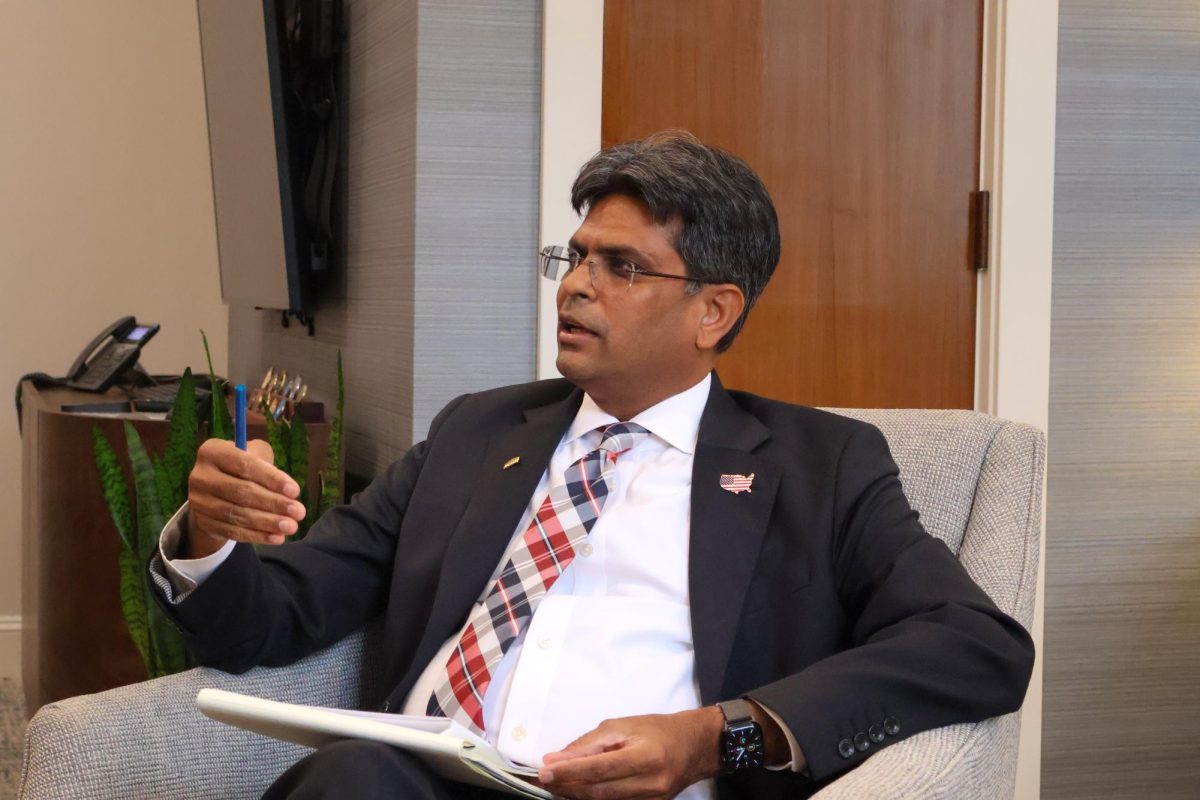







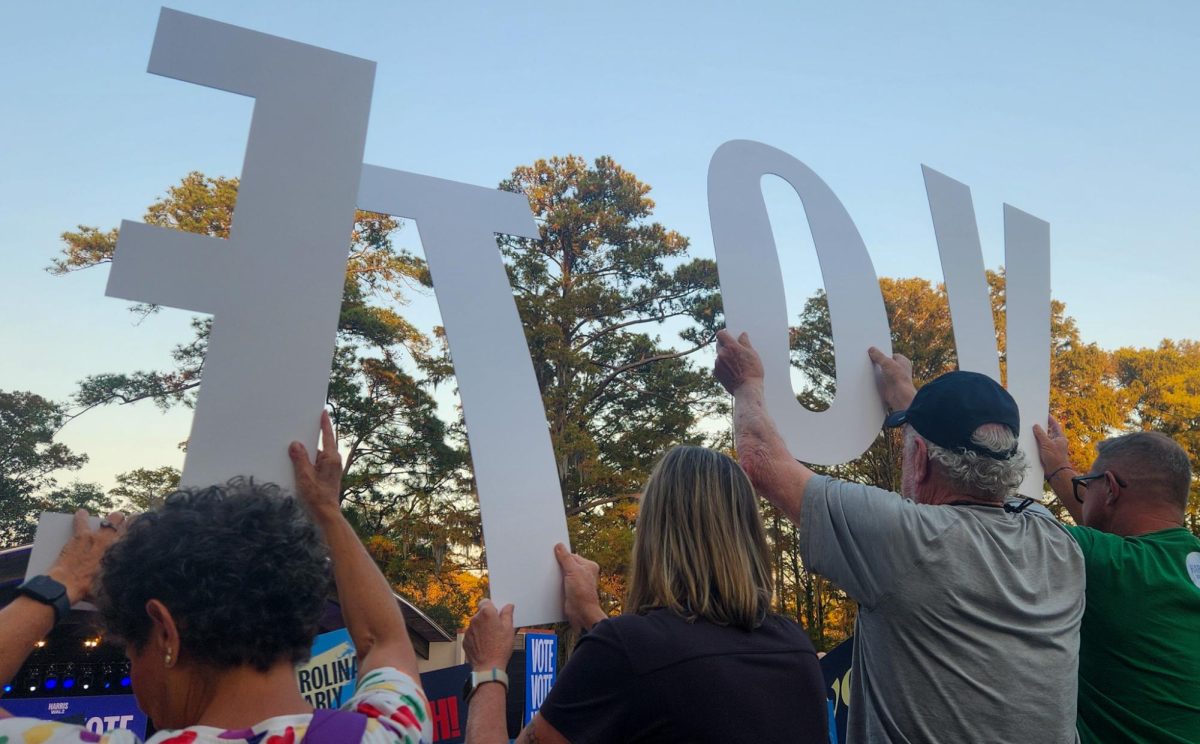
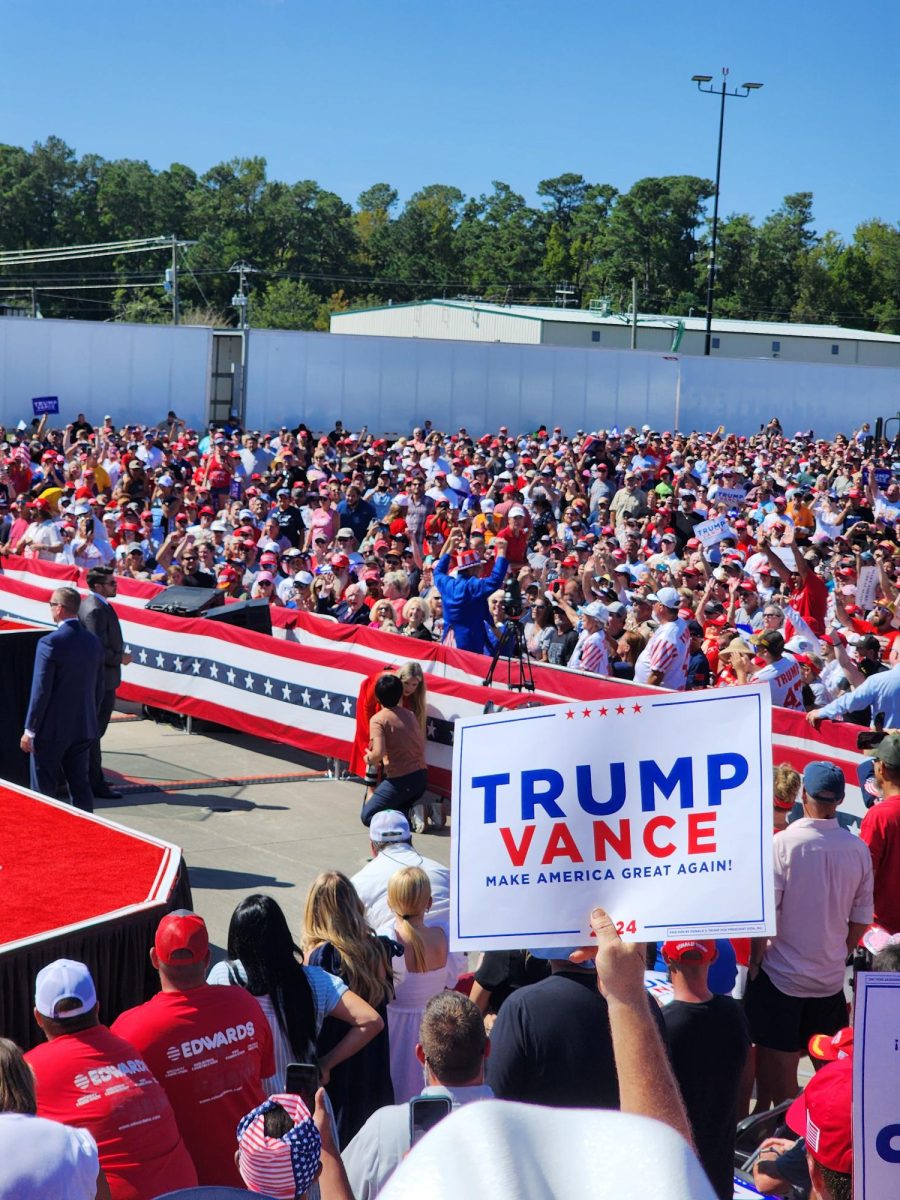






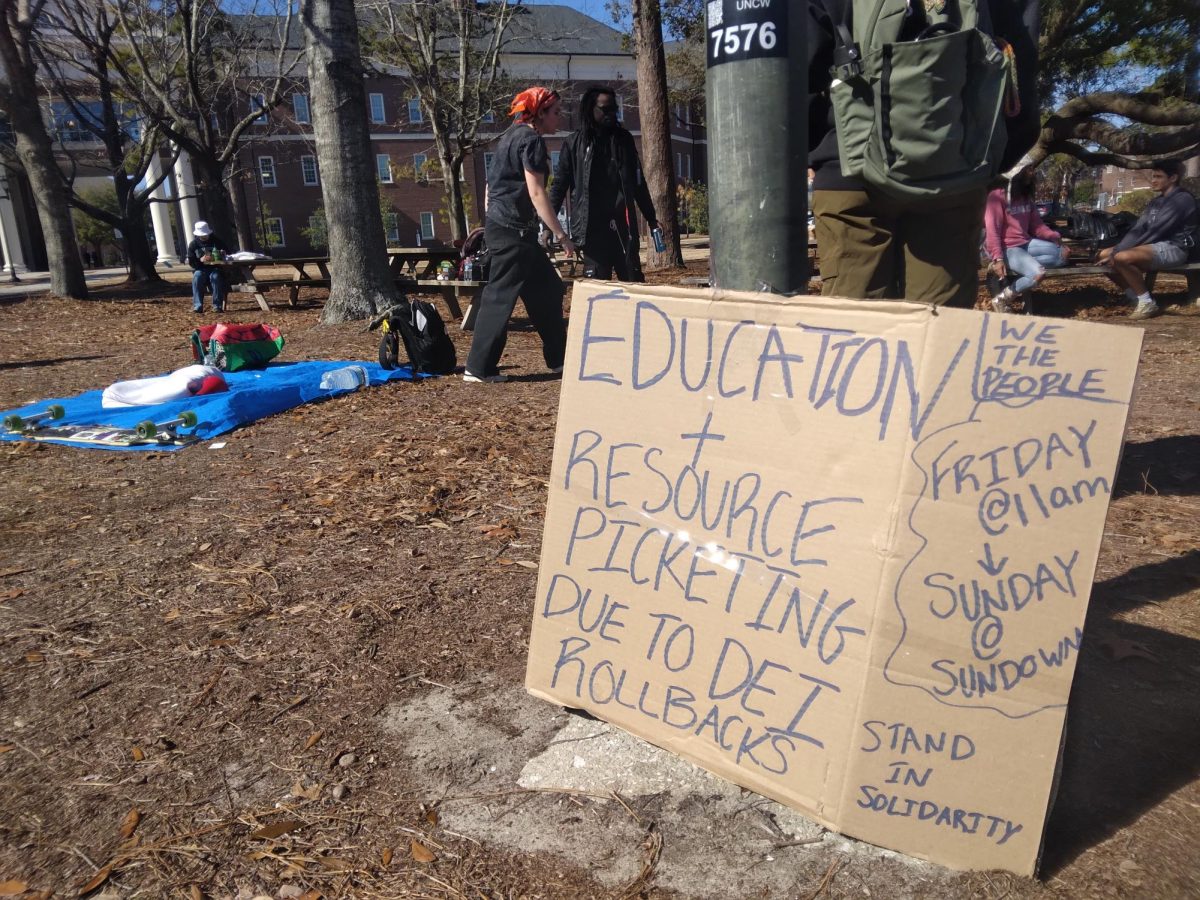

Kevin Cannon • Dec 18, 2023 at 4:47 pm
It’s real simple .Ton Hanks,Clooney and other A listers forced a disasterous merger with AFTRA.They (Hanks) formed the majority Board member parties UFS& USAN.USAN/UFS then began negotiating employer friendly contracts for almost two decades and in that time.Hanks & his union busting AMPTP studios stole the rank & files residuals and effectively destroyed the power of the Screen Actors Guild and the ability of the working class actor to make a living wage or attain pension & healthcare.
The current strike was caused by SAG-AFTRA officials loyal to Hanks.
And this contract does Nothing to help the members.It only helps A-listers & series regulars.
A group of us ,referred to as “low level” by Fran Drescher ,have been fighting for almost two decades.But without the money that Hanks has.We cannot afford to pay for brochures & emails to members and have not the celebrity status to gain media attention that Hanks has.
There will soon be no middle class actors.Which is Hanks plan all along
It’s a Disgrace and the government has allowed this with no criminal racketeering charges brought against Hanks and his UFS:USAN parties
Travis • Dec 17, 2023 at 11:20 pm
Go back on strike again